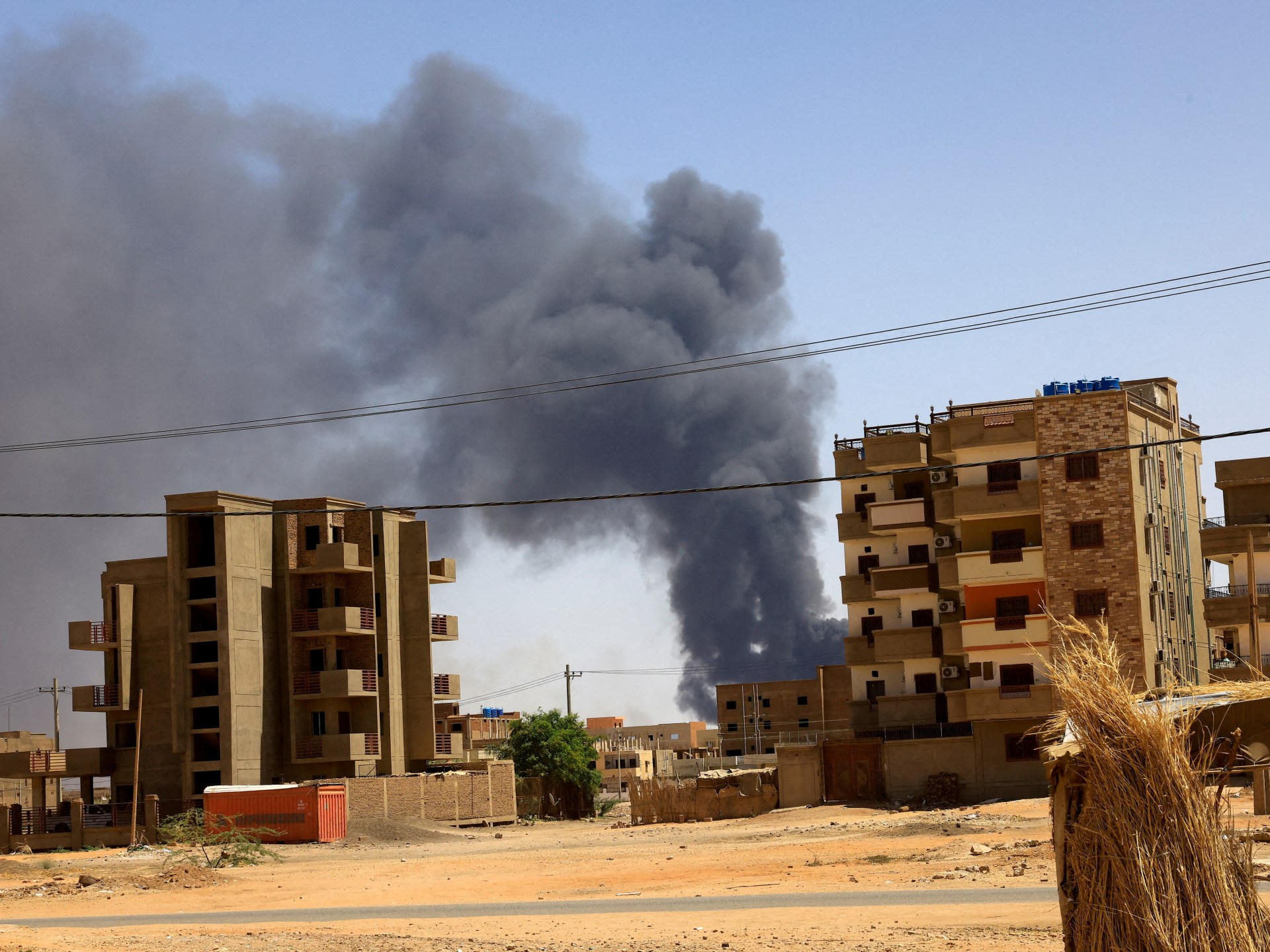Sudanese army warplanes bombed targets of the Rapid Support Forces in the east of the Nile, amid the sound of anti-aircraft missiles, while the parties to the conflict renewed their pledge to abide by the truce emanating from the Jeddah Agreement, which is expected to enter into force this evening.
Al-Jazeera correspondent reported hearing explosions in central Khartoum and some neighborhoods in the center and south of Omdurman, and pointed to heavy overflights of warplanes and sounds of anti-aircraft from the positions of the Rapid Support Forces in a number of neighborhoods south of Omdurman.
Clashes broke out this morning between the Sudanese army and the Rapid Support Forces in various locations in the capital Khartoum.
The ceasefire agreement is supposed to enter into force this evening, specifically at 9:45 local time, and remain in force for 7 days.
Meanwhile, Malik Agar, deputy chairman of Sudan's Sovereignty Council, called on Monday to end the conflict in the country and reach logical solutions through dialogue.
This came in remarks to Aqar during his meeting with the President of the State of South Sudan, Salva Kiir Mayardit, in the capital, Juba.
Pledge to abide by the truce
Sudan's military said the Sudanese armed forces were committed to the Jeddah Agreement's text of the ceasefire, which will take effect this evening.
The army stressed in a statement that the agreement is limited to the military and technical aspects of temporary ceasefire arrangements, in addition to arrangements for the protection of civilians and hospitals, and does not address political issues.
On the other hand, Youssef Ezzat, political adviser to the commander of the Rapid Support Forces in Sudan, described the ceasefire agreement in Jeddah as a good and positive step, and said that the RSF is committed to the truce and ceasefire.
Ezzat added that what is new in these negotiations is the need to form a committee to monitor the ceasefire, which was approved in the recent agreement in Jeddah.
UN special envoy to Sudan Volker Perthes said fighting in Sudan was continuing, despite a commitment by both sides not to seek military gains before the ceasefire takes effect.
Peretz said during a briefing to members of the UN Security Council that the ceasefire agreement is renewable and must allow civilians to move and humanitarian access to them, reiterating his call for an end to the fighting and a return to dialogue.
On the other hand, Peretz warned of the growing "ethnic dimension" of the military conflict that erupted in Sudan last month, and its potential impact on neighboring countries. "The growing ethnic dimension of the conflict threatens to plunge the country into a protracted conflict and spill over into the region," he said.
Jeddah Agreement
A Saudi-US statement said the ceasefire agreement in Sudan, signed in Jeddah, would enter into force on Monday evening.
The statement added that the agreement would be supported by an internationally backed monitoring mechanism by Saudi Arabia and the United States, for the first time since the confrontations began.
The agreement included a commitment by the parties to the conflict in Sudan to deliver and distribute humanitarian aid and the restoration of basic services, as well as their commitment to withdraw troops from hospitals and basic public facilities.
Fighting that erupted on April 15 between Sudan's army led by Abdel Fattah al-Burhan and the Rapid Support Forces led by Mohamed Hamdan Dagalo killed nearly a thousand people and displaced more than a million inside and outside the country.

